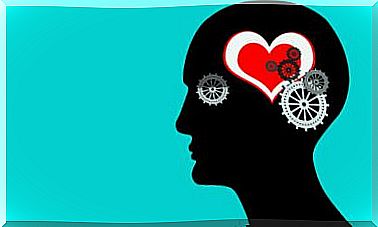It Is Never Too Late To Give Our Emotions A Chance

A good education teaches to put limits to many of the desires that gravitate in our mind, so that they do not finally materialize through behaviors. Desires that, if released at will, could harm others or ourselves. However, there is an enormous distance from there to an education that aims to systematically inhibit our emotions.
The downside is that this happens relatively frequently. A child can pose challenges that exceed patience, especially when you have to fulfill a very demanding job, with a complicated relationship or a not very pleasant life story.
This is why some parents complain, pretending that their children are little more than automatons that they can direct with precision and without complications. Let them remain still and quiet, do not invade their rest or threaten to hinder their professional projection. That they always obey and do not object. In short: that they learn by themselves to control their impulses or directly that they are already born with this assimilated ability.
No parent wants the result of the education they offer to be that of an illiterate child in handling emotions. In fact, many believe that by teaching them to deny or ignore their emotions they are preparing them for the world. However, the reality is very different. Whoever grows up believing that imprisoning their emotions is positive, or will live in guilt for not being able to contain themselves or will crash with bitter realities throughout their existence.
Mechanisms to avoid relating to emotions
A child is an immature being, who is completely dependent on adults and, for that very reason, takes them as absolute referents. Many parents do not understand that the goal of education is to give them a firm hand so that they can learn to walk on their own and build their path. On the contrary, they implement mechanisms so that the opposite occurs: that dependency is perpetuated and, with it, obedience.

These parents implement an education in which emotions are seen as disturbing elements and that, therefore, must be set aside. How do they do it? Through various mechanisms. One of them, widely used by mothers, is to victimize themselves and, at the same time, blame the child. “If you don’t eat, your mommy is going to be sad,” they tell her. It seems harmless, but these kinds of formulas extend into increasingly complex behaviors.
There is also, of course, direct coercion: fear. Severe punishments are applied and the child is conditioned to act on the basis of fear of punishment. The worst thing is that perfectly healthy behaviors such as crying, getting angry, or laughing too much are punished. “If you keep crying, you’ll see what happens,” they say. “Stop laughing, if you don’t want me to punish you”, is another of the usual phrases in the framework of this type of education.
The child probably does have reasons to cry, laugh or get angry. Emotions by themselves are not good or bad: they are human. A normal human being laughs, cries and gets angry. What we must learn is to design a border so that those emotions do not lead to unhealthy behaviors. But feeling them, in itself, is completely normal and healthy. However, some parents are too distressed when their children experience sadness or anger. That is why they choose the easiest way, but also the most brutal: repress.

Educate yourself again, you can
Clearly, those childhood marks are indelible. Some of them remain forever. However, this does not mean that they cannot be worked on so that their impact becomes minimal. To achieve this, the first thing is to recognize that they are there, that they exist and that they hinder our lives.
Identifying parents’ mistakes does not mean disrespecting them, loving them less, or hurting them. Understand it more as a way to complement or improve the education they gave you. For sure, what every parent wants is to see that their child is happy. Sometimes they take wrong paths to fulfill that purpose and that is when you, as an adult, can and should refocus the path.
Perhaps even as an adult, you think in the same way that you were educated : putting your emotions away is the best thing so that they do not become a nuisance. You may even brag about it and see it as proof of maturity. That you don’t cry, even if you feel like doing it; You just breathe and hold That your annoyances are always reasonable, you never yell and you never “go out of your way.” That you are “cerebral”, although from time to time you have unbearable attacks of anguish, or you block yourself in front of different situations.

Think that if emotions overflow it is not because they are dangerous or negative, but because no one taught you to regulate them or to use their energy in your favor. In addition, in your eagerness to save them, you may have accumulated so much emotional energy that you have had to explode, causing much more damage than those emotions would have caused if you had regulated them intelligently.
The bad news is that no one taught you. Nobody told you that they were part of you and that you felt precisely to have a better life. The good news is that you are in time to start giving them a chance and start a different relationship with them. That’s why, from this little corner, I want to invite you to the paroveches.
Images courtesy of Margarita Kareva, Art TreeLight, Anne Miklos









